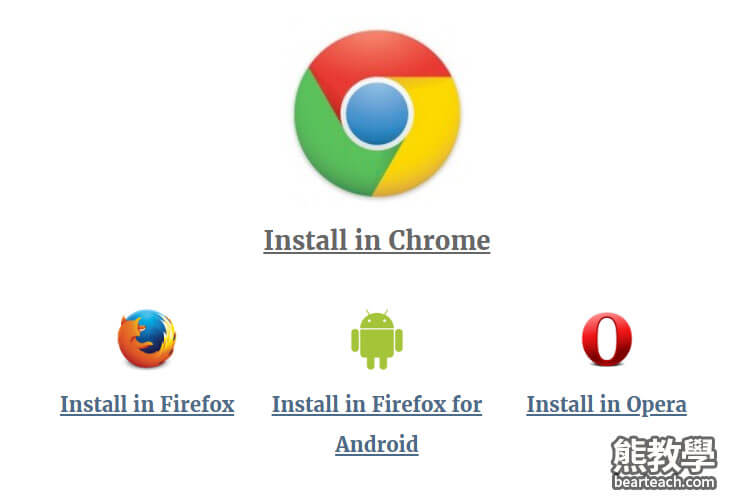
The browser maker said that 92.8% of web pages were already loading via HTTPS connections, a sign that HTTPS was now ubiquitous and a reason why the EFF is now preparing to sunset one of its most successful open source projects. In a report published in March 2021 analyzing the rollout of its HTTP-Only Mode, Mozilla said that Firefox upgraded HTTP to HTTPS traffic only for 3.5% of the web pages that its users tried to access. Behavior added in Safari 15, released in September 2021. Safari will attempt to auto-upgrade all HTTP connections to HTTPS by default.

#Https everywhere chrome how to#
Instructions on how to enable each of these modes are available below: HTTPS-only modes are now available in Mozilla Firefox, Google Chrome, Microsoft Edge, and Apple Safari.
#Https everywhere chrome upgrade#
Since 2020, several major browser makers have launched HTTPS-only modes, where the browser will try to upgrade the connection from HTTP to HTTPS on its own or show an error message to users if an HTTPS connection is not found - doing natively what HTTPS Everywhere has been doing for more than a decade. Currently, around 86.6% of all internet sites support HTTPS connections.īrowser makers such as Chrome and Mozilla previously reported that HTTPS traffic usually accounts for 90% to 95% of their daily connections.īut efforts to improve HTTPS adoption have not taken place at the website level.

Progress in HTTPS adoptionīut since 2010, HTTPS is not a fringe technology anymore. The extension reached cult status among privacy advocates and was integrated into the Tor Browser and, after that, in many other privacy-conscious browsers. At the time it was released, it helped upgrade site connections to HTTPS when users clicked on HTTP links or typed domains in their browser without specifying the “ prefix. The extension worked by automatically switching web connections from HTTP to HTTPS if websites had an HTTPS option available. Launched in June 2010, the HTTPS Everywhere browser extension is one of the most successful browser extensions ever released. No official end-of-life date has been decided, a date after which no updates will be provided for the extension whatsoever. Maintenance mode means the extension will receive minor bug fixes next year but no new features or further development. “After the end of this year, the extension will be in ‘maintenance mode’ for 2022,” said Alexis Hancock, Director of Engineering at the EFF. HTTPS Everywhere can do the hard work for you, automatically redirecting your web browser to a secure version of a website whenever there is one available. The Electronic Frontier Foundation said it is preparing to retire the famous HTTPS Everywhere browser extension after HTTPS adoption has picked up and after several web browsers have introduced HTTPS-only modes. This usually involves little more than changing the http part of the URL to read https instead, but this is something that few people could be bothered with doing on an on-going basis. No vulnerable-javascript (retirable jQuery library alert).EFF to deprecate HTTPS Everywhere extension as HTTPS is becoming ubiquitous assets/dist/js/:38Ģ1 security related recommendations after linting:įor disown-opener no-protocol-relative-urls sri strict-transport-security validate-set-cookie-header x-content-type-options See DOM-XSS sources and sinks: Results from scanning URL: - (Javascript = React) Where improvements can be made for website development in general (pol). I do not criticize it, but we should take good notion of all of this and see See what the security related implementations of https everywhere meantįor this random case chosen from HTTPS Everywhere Atlas: When a *.google.* MitM (local antivirus, firm proxy or now nation-wide like recently with Kazachstan) sends a falsified certificate with a trust chain to a root certificate, that does not come together with a standard root certificate, your browser will not alarm you.

In other words when another trusted certificate supplier other than for *.google.* has been used, and issues a violating certificate (like in the past happened with Dutch DigiNotar), this will lead to an alert inside the browser.

Your browser stays silent on such violations. This will mean that for users who imported custom root certificates all pinning violations are being ignored. Whether Chrome makes an exclusion for *.google.* is not known to us, but HPKP support has been partly disabled now in recent browsers.įirefox and Chrome disable pin validation for pinned hosts whose validated certificate chain terminates at a user-defined trust anchor (rather than a built-in trust anchor). Why chrome has pinned their certificate for ? Does it mean, google does not trust all and every certificate provider? Even a lot of tech folks aren't always aware of the following info:


 0 kommentar(er)
0 kommentar(er)
